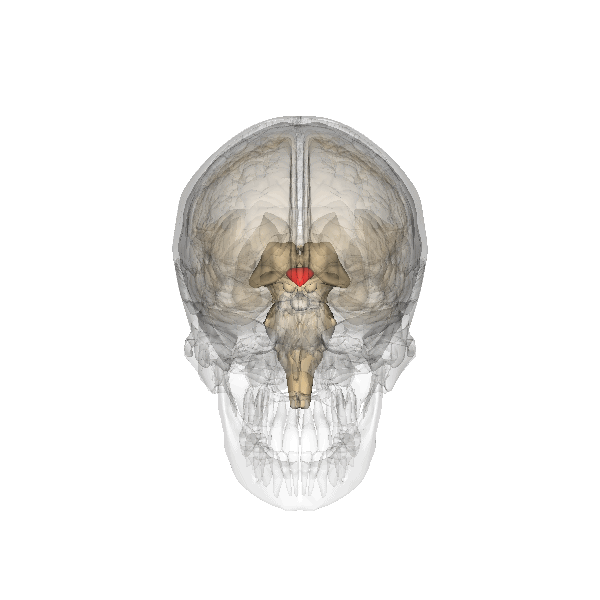You’re sitting in the doctor’s office, wearing that thin paper gown, feet dangling off the edge of the exam table. It’s cold, sterile and that smell of sanitizer is enough to make you want to get up and leave. But you can’t. Because you are numb from the news. You’ve just been told you need a hysterectomy. Maybe it’s because of fibroids, endometriosis, relentless bleeding, or something they just couldn’t quite fix. You nod along while they explain the procedure—the risks, the recovery—but there’s one thing they gloss over: What happens after? Not the stitches. Not the healing. But what happens inside your body hormonally, emotionally, once your uterus is gone?
No one tells you how quiet things get. How confusing it is to not have a period, but still feel… off. Hot flashes start sneaking in, or maybe you’re suddenly anxious, snapping at people you love, waking at 3 a.m. in a cold sweat. And you're left wondering, “Wait... am I in menopause? How would I even know?” So what now? That’s exactly what we’re diving into today.
So, fascinating Lady, if you’re ready. It’s time to question the norm, trust your wisdom, shake things up, and sage with sass and grace! Hold on to your yam cream because we are discussing the different typed of menopause and answering Michelle’s question;
How to know your in menopause when you don’t have a uterus but have your ovaries. I no longer get periods. How do I know if I’m in menopause?
I asked in the subscribers chat if anyone had some questions they would like answered on an upcoming show. Michelle had a bunch of questions, (thank you Michelle) so I broke them up so that I can just answer one with each podcast. If you would like to have a question answered you can either leave me a message on my dedicated podcast line that no one answers (656) 222-0848 or you can add to the chat here
And lastly, I wanted to say welcome and hello to new subscribers — I hope you will join in on some conversations. Thank you for subscribing.
Let me ask you this:
Have you ever felt blindsided by your body? Like one day everything was normal, and the next, it was like a hormonal hurricane blew through without warning?
If that sounds familiar, I’d love for you to pop into the show notes and share your experience. Did you have support? Did anyone warn you? Or were you, like so many of us, left trying to Google your way to clarity? Let’s get a conversation going.
Show notes details
What can cause an early menopause or an instant menopause.
Medications such as GnRH agonists or antagonists (e.g. leuprolide): Used to treat endometriosis, fibroids, or breast cancer, these suppress the production of estrogen and can mimic menopause. While often reversible, prolonged use may risk ovarian suppression.
Chemotherapy drugs—especially alkylating agents (like cyclophosphamide)—can damage ovarian follicles. This may lead to temporary or permanent loss of ovarian function depending on:
Type and dose of chemo drugs—especially alkylating agents (like cyclophosphamide)—can damage ovarian follicles. This may lead to temporary or permanent loss of ovarian function depending on:
Type and dose of chemo
Age at time of treatment (younger ovaries may recover)
Radiation Therapy
Radiation to the pelvis can harm the ovaries directly.
Even if the ovaries are not in the direct radiation field, nearby exposure or scatter can still reduce ovarian function.
According to the American Cancer society chemotherapy, radiation and even hormone therapy can lead to premature menopause even when it is not related to your genealogical parts however, it may be temporary, or sometimes permanent it just depends on the uniqueness of their biology.
A 2015 study looked at young chinese women aged 45 years and younger, with breast cancer and chemotherapy - related amenorrhea (when your periods stop) found that there was higher risk with the older women experiencing menopause after chemotherapy. Where as with younger women it trmporarily supressed menses.
Types of Hysterectomies or Removals
Partial or subtotal hysterectomy —only removal the body of the uterus, thus the surgeon leaves the cervix, the upper part of the vagina, connective tissues, uternie tube and ovaries this helps to retain bladder control and sexual function and enjoyment.
Total hysterectomy — removal the body of the uterus and the cervix. and leaves everything else — upper part of the vagina, connective tissues, uternie tube and ovaries this helps to retain bladder control and sexual function and enjoyment. (This is to treat fibroids, endometriosis, uterine and cervical cancer as well as the potential seeding of other cancers
Radical hysterectomy — removal the body of the uterus and the cervix and up to 1/3 to 1/2 of of the upper part of the vagina, the supporting connective tissue, lymph nodes, for much the same reason for total hysterectomy fibroids, endometriosis, uterine and cervical cancer
Salpingectomy — removal of the uterine tube one or both everything stays — typically used for permanent birth control. Or sometimes for cancer as some research shows it is the in the utern tube —where cancer seeds and spreads.
Tubal Ligation (Tubes Tied)— this is used for sterilization procedures— it is intended to be permanent, but sometimes reversible depending on method used such as a clamp or ring for removal later if the woman chooses to however it is may result in permanent damage.
Oophorectomy or Bilateral oophorectomy- removal of the ovary or ovaries everything is left in place. If both ovaries are removed regardless of the type of medical intervention that is considered instant menopause and all the symptoms that most women have a year to experience, you experience in a very short of time. And, if this is you fascinating lady —please go and find a naturopathic or functional medicine practitioner or OBGYN that will help you out with not only bioidentical hormones but also some herbs and other adaptogens to help support you through that phase and beyond.
Hypothalamus

To get a better understanding of the hypothalamus, check out these show notes for a picture, and description of the hypothalamus
Test to know if you are approaching menopause or beyond
You can have your doctor run some testing such as testosterone, progesterone and estrogens including estradiol as well as the following to get a clearer picture of what is going on;
FSH (Follicle-Stimulating Hormone):
Goes up during menopause because the brain is shouting at the ovaries to make estrogen, but they’re not responding well anymore.
High FSH and low estradiol together are classic menopause markers.
LH (Luteinizing Hormone):
Also rises, but not as commonly tested as FSH.
Progesterone:
Tends to drop earlier in perimenopause because ovulation becomes irregular.
But estradiol is the key one that drops the most as you hit menopause.
And, one more test AMH (Anti-Mullerian Hormone) – helpful in assessing ovarian reserve
This is especially helpful if you had your uterus removed in your 30s or 40s and want to know if you're transitioning now or still have some time.
And then, from there, you may have to test every 6 months to a year to see how your hormones changing depending on your age.
Now I want to hear from you
Have you had a hysterectomy but kept your ovaries?
Or had parts removed?
Are you wondering where you are in your menopause journey without a monthly cycle to guide you?
Have you experienced sudden menopause from chemo, radiation, or surgery—and what helped you through it?Let’s help Michelle out and let her know she is not alone.
I hope my one ovary story was helpful and funny— I thought it was funny. —that;s my contribution. please Share your experience in the comments or show notes—your story might be exactly what another woman needs to hear.
And for all of the fascinating ladies, whether you enter menopause slowly, suddenly, or through surgery, you deserve support. There are herbs, supplements, adaptogens, and yes, even bioidentical hormones that can make a difference.
Listen to your body. Track your symptoms. And if you're feeling "off," it's worth a check-in. You're not alone, and there's a whole community of fascinating women navigating this right alongside you and the cool thing is, it doesnt matter what the age is.. if you are going through it, we are here for you.
Did you know Each Monday at 4:00 AM EDT, a new episode arrives in your inbox, effortlessly. All you have to do is click, and listen in. Pretty simple right? Well, I have 3-4 podcasts a month and a monthly recipe for you all so that you can sage with sass and grace.
Do you have a question or topic you’d like me to explore? (656) 222-0848
📞 Leave a message on my dedicated podcast line: (656) 222-0848 or comment here or message me.
Feeling Like You Want To Chat?
Sign up for your Power Half Hour and get all your questions answered. I include a bonus Health History so that when we meet we can spend the entire time specifically answering your questions with really good answers.
Michelle, thank you for your question, I hoped it helped and everyone, thank you for joining today's discussion. Remember, taking proactive steps toward physical and mental well-being is a journey, and seeking support is always a sign of strength.
Stay well, and until next time, question the norm, trust your wisdom, elegantly and unapologetically roar. And most of all… Lady, keep being fascinating and sage with sass and grace in every day life.
~Karen















Share this post